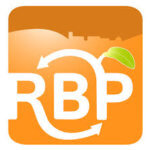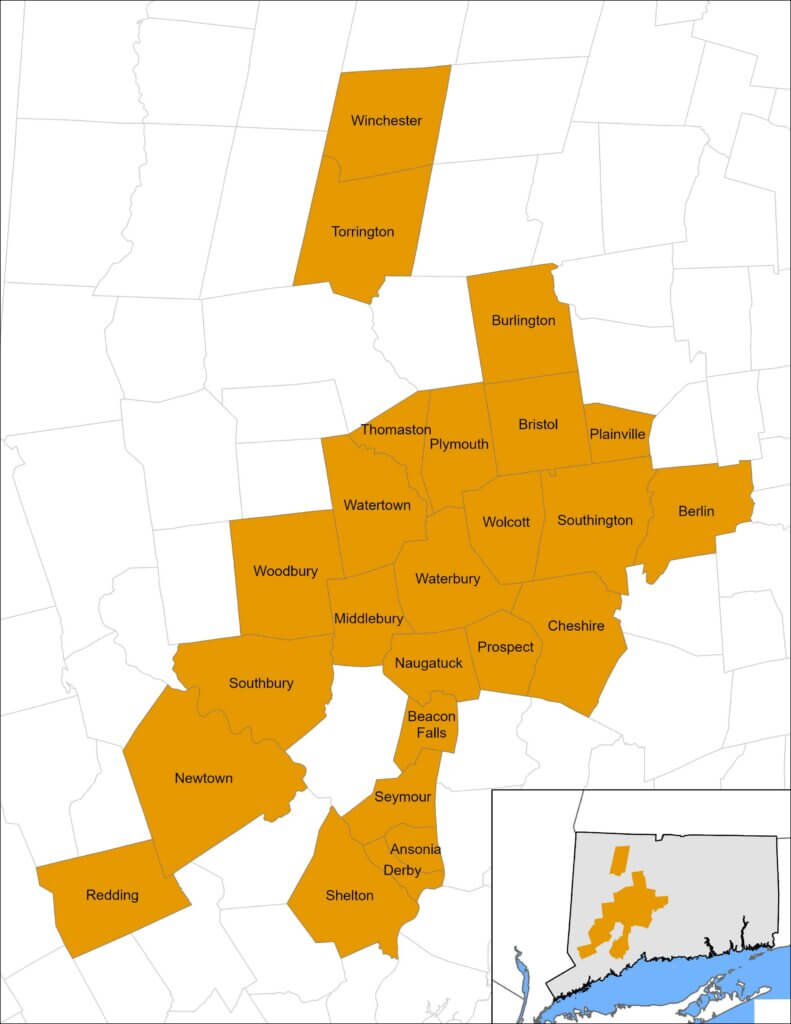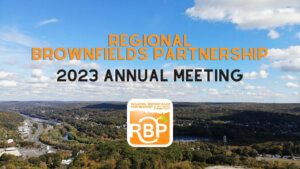The Regional Brownfields Partnership (RBP) is a committee hosted by NVCOG who are working together to meet the collective redevelopment challenges that brownfields present in the region.
The RBP grew out of the Naugatuck Valley Brownfields Pilot program established by an EPA grant in 1996. Over 20 years later, it has expanded to encompass 25 cities and towns in west-central Connecticut. The RBP is geographically diverse, representing a collection of historic downtowns, neighborhood centers, and surrounding suburban and rural communities extending north to south from Winsted to Shelton and west to east from Newtown to Berlin.


RBP Membership
The RBP is made up of Municipal Member representatives and community partners who are invested in transforming brownfields into community assets. The RBP functions by collecting annual membership dues from its municipal members; in turn NVCOG staff provides municipal members with access to federal and state brownfields subgrants and loans, as well as guidance and expertise on how to navigate the environmental assessment, remediation and clean–up process.
Benefits of Being an RBP Municipal Member
- Access to low interest loans and sub-grants to fund brownfields assessment or cleanup projects.
- Technical assistance including initial site investigations and project management support.
- Access to other members in the region to learn best practices of brownfield assessment and remediation.
- Assistance in accessing other state, federal and philanthropic resources
Member Municipalities
• Ansonia • Beacon Falls • Berlin • Bristol • Burlington • Cheshire • Derby • Middlebury • Naugatuck • Newtown • Plainville • Plymouth • Prospect • Redding• Seymour • Shelton • Southbury • Southington • Thomaston • Torrington • Waterbury • Watertown • Winchester • Wolcott • Woodbury
Each of the 25 municipal members appoints one representative who has the authority to represent the Member municipality at meetings and participates in electing the Executive Board members. Non-municipal members can appoint one representative to the RBP, but they do not have voting rights to elect the Executive Board. Municipal members pay annual dues, however community groups and other nonprofit partners are welcome at no charge.
The Executive Board is composed of a Chair, a Vice-Chair, a Secretary/Treasurer and two municipal members. All members of the Executive Board are elected at the annual meeting occurring in odd years to serve their 2-year term of office.
Officers on the Executive Board serve a two-year term and are elected at the annual meeting by a vote. The Chair, Vice-Chair and Secretary/Treasurer are elected in odd years and the 2 additional municipal board members are elected in even years.
The RBP Executive Board meets at least quarterly to discuss grant and loan projects with staff and is responsible for reviewing grant and loan applications to NVCOG’s Assessment Program. Additionally it advocates for partnerships on projects, informs their communities they represent on funding opportunities, volunteers to help keep the Licensed Environmental Professional (LEP) project selection process informed, fair and transparent, discusses governance, provides proof to funders that the RBP is intact and functioning and supports brownfield educational outreach.
All members of the RBP are invited to attend and participate in the Executive Board meetings. Meeting times are listed on the NVCOG calendar and on our Facebook page prior to a meeting with the proposed agenda.
Current RBP Executive Board Members
Chair: Sheila O’Malley, City of Ansonia
Vice Chair: Ron Pugliese, Borough of Naugatuck
Secretary/Treasurer: Thomas Hyde, City of Waterbury
At-Large Member: Chris Edge, Town of Berlin
At-Large Member: Kurt Miller, Town of Seymour
Stay informed about upcoming meetings by checking the agency calendar. The Annual Meeting, typically held in the Fall, brings together RBP members, public and private stakeholders, and brownfield enthusiasts.
Upcoming Meetings
Past Meeting Minutes
Regional Brownfields Partnership Executive Committee Meeting
July 20, 2023 @ 2:00 pm – 3:00 pm EDTSubscribe to the RBP Newsletter. Read about the team’s insights on active brownfield projects and funding opportunities.
Explore the diverse offerings within the Regional Brownfield Partnership (RBP) by clicking the tabs below. From technical assistance for municipal members to insights on non-municipal participation and the role of the Revolving Loan Fund Committee, delve into the full potential of the program.
NVCOG brownfields’ staff can provide technical assistance to RBP Member Municipalities conducting environmental planning, assessment, and remediation projects. At the request of the Chief-Elected Official of an RBP community, the NVCOG brownfield team can assist with a variety of technical assistance including:
Initial Site Investigations: Upon request, NVCOG staff can assist with researching and reviewing past environmental assessments conducted on the site, site ownership, historical use, current use, history of transfer, water resources on or adjacent the site, in addition to reviewing files available through CT DEEP and meeting with local Chief Elected Officials and staff.
Additional services: If a municipality wishes to explore opportunities for redevelopment and the site is a strong candidate for investment, additional technical assistance including preparation of grant applications, preparation of liability relief applications, project management and strategy development may be offered as part of a grant or for a fee with services provided on an as-needed basis.
NVCOG has been steadily expanding non-municipal membership. Currently, some non-municipal members include the Housatonic Valley Association, the Naugatuck Valley Project, Naugatuck Valley Community College, Waterbury Regional Chamber of Commerce and the Central CT Chamber of Commerce. Non-municipal members that are 501(c)(3)’s are eligible to apply for brownfield sub grants and loans, however they must receive a letter of support from their municipality and the municipality must be a current member of the RBP.
Non-municipal members benefit by keeping abreast of the brownfield funding coming available and they can advocate for the communities they represent by reaching out to their municipal RBP member representative to highlight and promote sites that are in need of attention. Non-municipal members are invited to attend all meetings of the RBP Executive Committee, the Annual RBP Meeting and participate in future workshops, webinars and educational offerings that happen throughout the year. They also benefit by having access to other RBP members as a partner or reference in grant writing or funding applications.
If your organization is located in one of the 25 communities of the RBP and interested in becoming a member reach out to Steven Perry, Environmental Planner, at sperry@nvcogct.gov
The Revolving Loan Fund Committee, a sub-committee of the RBP, is responsible for reviewing grant and loan applications to NVCOG’s Revolving Loan Fund.
Applications for RLF loans and subgrants are accepted on a rolling basis as funds are available. As applications are received, the RLF sub-committee meets to review grant and loan applications to ensure eligibility has been met and to oversee grant and loan agreements with current sub-awardees and borrowers. Members of the Revolving Loan Fund sub-committee meet when a new subgrant or loan application is received for a cleanup project and vetted by NVCOG staff.
RBP Revolving Loan Fund Committee Members
First Selectman Ed Mone, Thomaston
Mayor N. Warren Hess, Naugatuck
Mayor Mark Lauretti, Shelton
For more information on our RLF program click here.
RBP Membership Questions
If you have general questions regarding RBP membership please email: Steven Perry, Environmental Planner, at sperry@nvcogct.gov

